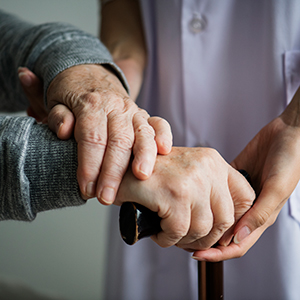Science tells us that aging can change our senses. Although this is a normal part of aging, it can have a big impact on our day to day lives.
WHICH SENSES ARE AFFECTED AS WE AGE?
All five senses can experience changes as we age. Sight, taste, smell, touch, and hearing may be lessened the older we get.
We may notice a gradual loss in one area or another slowly over time. Other senses may see a sharp decline due to disease or injury.
Also read, How to Tell If Your Elderly Family Member Needs In-Home Care?
When our senses change so does our ability to notice small details about the world around us.
Our lifestyle may be impacted due to challenges with communication and our ability to enjoy activities we once loved.
These issues can ultimately lead to isolation.
CHANGES IN VISION
Vision changes are very common as we age. The actual eye structures experience changes that affect our ability to see.
The sharpness of our visual acuity can decline. Our eyes may respond slower to changes in darkness or bright light.
We may have issues driving at night or in bright sunlight.
There may be a reduction in our peripheral vision that can also affect safe driving.
Older eyes may not produce as many tears resulting in dry eyes.
There are other visual disorders commonly seen among the elderly that are not part of normal aging and do require medical treatment. These disorders are cataracts, glaucoma, macular degeneration, and retinopathy.
CHANGES IN HEARING
Our ears are there so we can hear but they also help us maintain our balance.
Hearing loss is extremely common among older individuals. It affects their ability to hear what is happening around them and can also affect their basic balance.
Balance problems can quickly become a safety issue and make a person a high risk for falls.
Hearing aids can improve the quality of life tremendously in the aged population.
CHANGES IN TOUCH
The elderly population has skin changes and a decrease in circulation. These issues affect their sense of touch.
A reduced sense of touch can impact their ability to feel hot, cold or even pain.
Motor skills can be affected especially fine motor skills in the hands.
There can be an increase in skin sensitivity and injury to the skin because it has grown very thin over the years.
CHANGES IN TASTE
Taste may not seem like a very important sense, but the loss of taste can affect our lives in a big way.
The sense of taste may start to change gradually after the age of 60. You may notice changes in the ability to differentiate between salty, sweet, bitter and sour foods.
When we can’t taste our food it is easy to lose our appetite and lose all interest in eating.
This can cause nutritional deficits among the older population and lead to serious health issues.
CHANGES IN SMELL
Our sense of smell is tightly woven with our sense of taste.
The smells of our favorite foods help our appetite kick in. If we don’t smell the food our appetite may naturally be decreased.
There are also physiological issues associated with not being able to smell familiar and beloved scents.
People need to be aware of the safety concerns associated with not being able to smell smoke, spoiled food or even poisonous gases.
BE PROACTIVE ABOUT SENSORY CHANGES
It is important to be informed about what to expect as we age. Be proactive about sensory changes.
Follow up with your physician as your senses change and be open to new devices or lifestyle changes that can help combat the loss of some of the senses.
The loss of some of our senses does not have to define our lives and there are many accommodations that can be made so life is still full and exciting.
Blue Ridge Senior Services offers in-home senior care services that can assist seniors who are experiencing serious sensory loss. Call us today to learn more.

